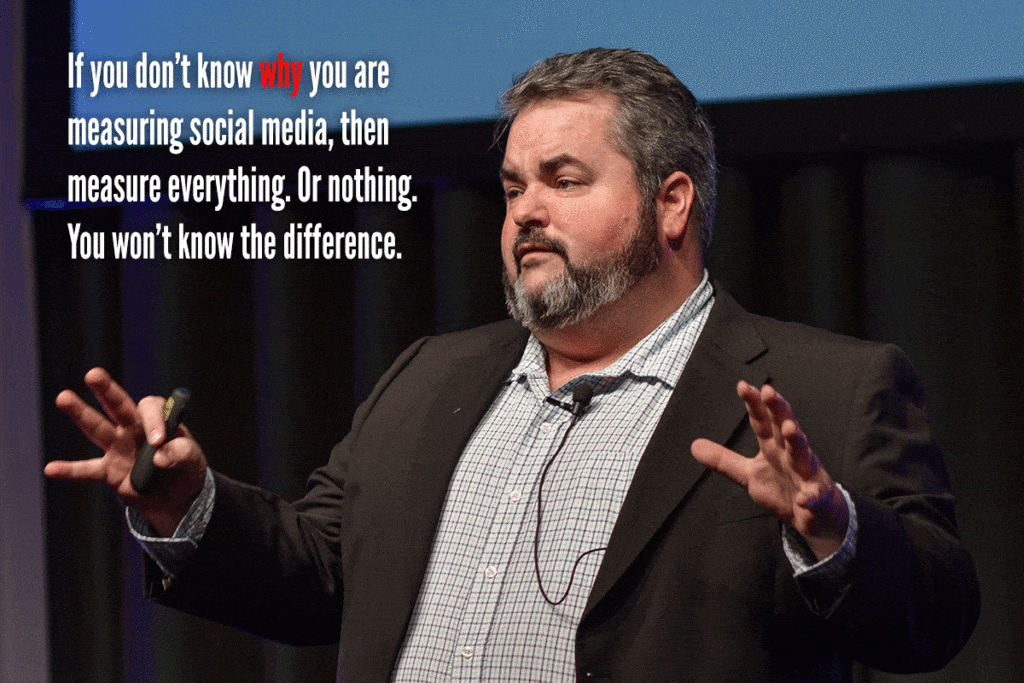What social media metrics really matter to your business? That’s the question you need to ask yourself before you spend one second of time planning, building or engaging with social media audiences for your company.
Measuring social media has an almost infinite number of permutations. You can measure all the tidbits of information the social networks present to you as important:
- Number of Followers
- Number of “Engagements” (meaning likes, favorites, comments and shares)
- Various formulas based on those numbers (like engagement rate, follower growth, etc.)
Or you can use the content and engagement you present on social networks to drive those audiences to do other things like visit your website, subscribe to your email newsletter or even buy your product. And there are dozens of combinations of all those factors cross-referenced with the basic social metrics, too.
Why is Choosing Social Media Metrics Hard?

The problem of choosing the best social media metrics for your business is not just there are several options to choose from, but also because every brand is different, so every set of social media metrics is different as well.
You can use social media for measuring leads, sales and revenue. But social media is not an environment that caters to a business with its ads turned up and its hand out. However, if you build trust with your audience and present solutions to their problems, getting them to click on a link to your website to purchase something isn’t impossible.
Look at the image here, taken from a SimplyMeasured account. There are no sales, conversions or financial metrics offered in the high-level metrics reported. So even setting yourself up to know the data is going to take work. (But is do-able. See Neil Patel’s guide to Google Analytics Social Reports for more.)
What Other Social Media Metrics Matter?
What if your goal is to create brand awareness? That’s where the stock social media metrics help. Impressions is generally the number of people who see your social content. Reach is a trickier one. It normally refers to the *potential* impressions you could have if every single follower of every single person who shared your content saw every single piece of content. So it doesn’t count for much.
You can also shape total followers, engagement and more into awareness proof.
Then there are the communications goals like changing the way people think about an issue or your product, or righting an incorrect perception about a product in the marketplace. Social media metrics for that isn’t surfaced by the analytics tools or social networks insights panels. For those goals, you need to measure the quality and quantity of mentions of the brand/product/topic before you begin, then measure again against the benchmark to see what effect you had. (Hint: Social Listening tools are helpful here.)
How Do You Choose the Social Media Metrics that Matter for You?

The answer to the question, “What social media metrics should matter to my business?” is dependent upon your business goals. Why are you using social media? If you don’t know why, then measure everything. Or nothing. Because you won’t know the difference.
But if you know what you’re ultimately trying to accomplish, choosing the goal for social media to complement that, then the actual target data or rate becomes easier. When you know that, you can then assess what tools you need to deploy to capture the data and report your social media metrics.
What Social Media Metrics are Important for You?
So? What social media metrics matter for your business? I’d love to hear which ones and how you’re tracking them. As always, the comments are yours.

